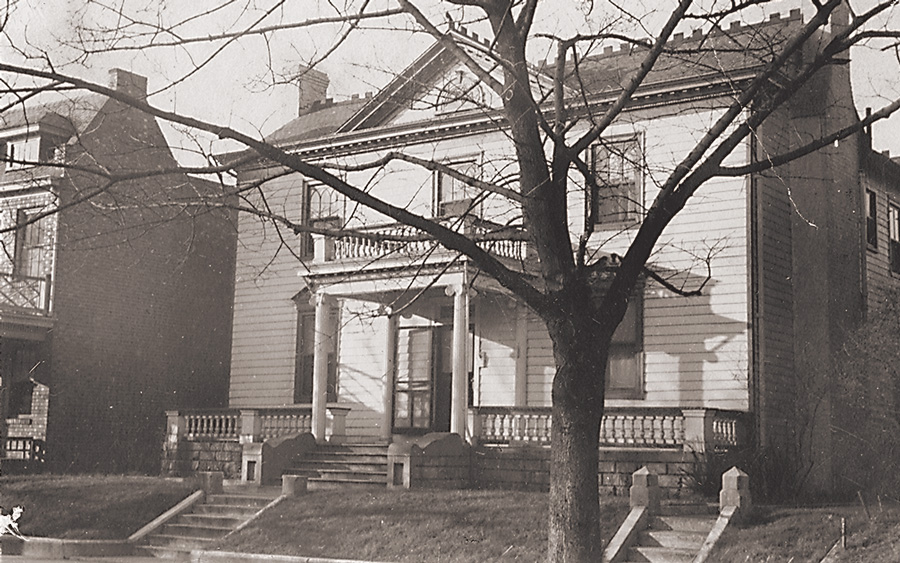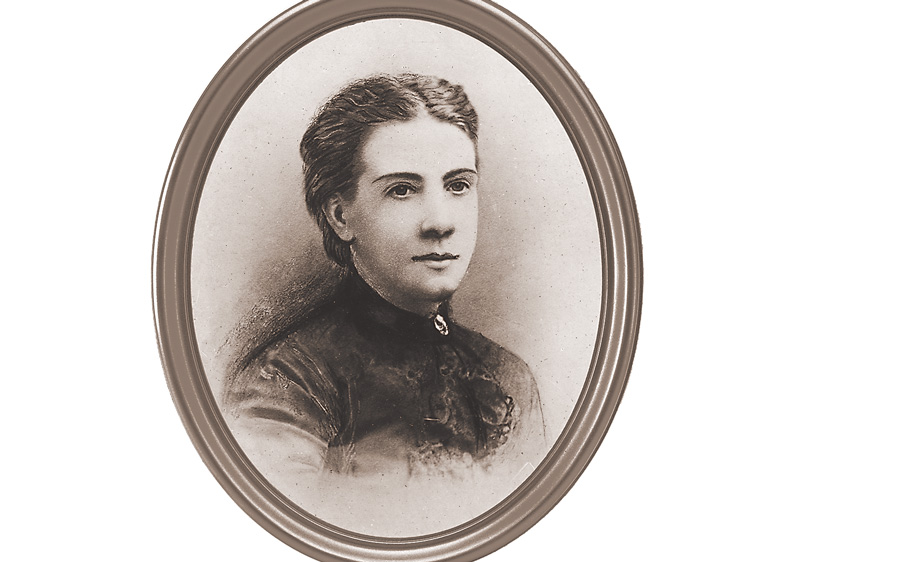Confederate spy, Poe’s friend, hearing impaired – a complicated figure in southern history, see why Susan Archer Talley’s life is the stuff of novels.
In 1830, Thomas Talley moved his family from his Hanover County plantation to live in Richmond. The reason for the move was remarkable for that era: He wanted better educational opportunities for his bright eight-year-old daughter Susan Archer Talley. But tragedy soon struck when she caught scarlet fever. The illness left her completely deaf at the age of ten. With educational opportunities for hearing-impaired children nearly non-existent, Talley was forced to abandon her formal studies. However, she had learned enough in her first decade of life to turn to books for education. She disappeared into them, preferring solitude to the company of other children.
Talley’s father built a farmhouse in the rural outskirts of the city in 1838. At the time, the area that we call The Fan was bucolic – with forests, fields, and creeks. When she wasn’t reading, the teen-aged Talley explored her father’s twenty-five acres. Inspired by her surroundings, she grew happier, more prolific in her reading and writing, and began to attract notice for her work. Through self-education, Talley had grown into an impressive artist. Though talented in painting, drawing, and sculpture, she was first and foremost a poet. Talley submitted poems to the Southern Literary Messenger, a well-respected literary magazine based in downtown Richmond, and was first published there when she was sixteen.

In her twenties, Talley met Edgar Allan Poe, an editor at SLM whom she considered an influence. They became friends. When Poe returned to Richmond in 1849 to lecture on “The Raven,” he visited Talley at the farmhouse. He was still unsatisfied with the poem and sought her advice on it. A few weeks later back in Baltimore, Poe died under mysterious circumstances. It is believed that his last reading of “The Raven” took place in the Talleys’ parlor for a small group of friends.
Talley herself enjoyed a successful career as a respected poet and writer. Her first book of poems was published in 1859. She became a regular contributor to SLM and other magazines, such as Harper’s Magazine and Scribner’s. The Civil War, however, disrupted publishing and prevented a second book from Talley. The war also brought unexpected adventure for the reclusive, hearing-impaired poet. She became a Confederate spy and smuggler. Perhaps a meek cover made her the perfect candidate for such work, but her cover was eventually blown. She was arrested in 1862 while trying to smuggle percussion caps (used for muzzle loading) into Richmond. She had stashed them in a coffin, which she had claimed contained the body of her dead brother.
Talley was imprisoned at Fort McHenry in Baltimore for two months. She passed the time making crayon portraits of her captors. In another surprising twist, while incarcerated, she met and wooed a Union colonel from Germany named Louis von Weiss. They were married in 1863, but Talley soon became unhappy and sued for divorce. She gained custody of their one child, a son, and moved back to Richmond. She remained here until her death at the age of ninety-five in 1917.
In 1907, she published a notoriously unreliable biography of her friend Poe, entitled, The Home Life of Poe. In this biography, Talley lamented how the war had changed her family’s property, known as Talavera, which she described as “a bare and lonely house in the midst of encircling fortifications.” The trees, greenhouse, orchard, and vineyard had all been destroyed. The family sold the farmhouse in 1872. In the following decades, urban growth would further transform the acres around it into streets and townhouses. With that development, Talavera acquired an address: 2315 West Grace Street.






